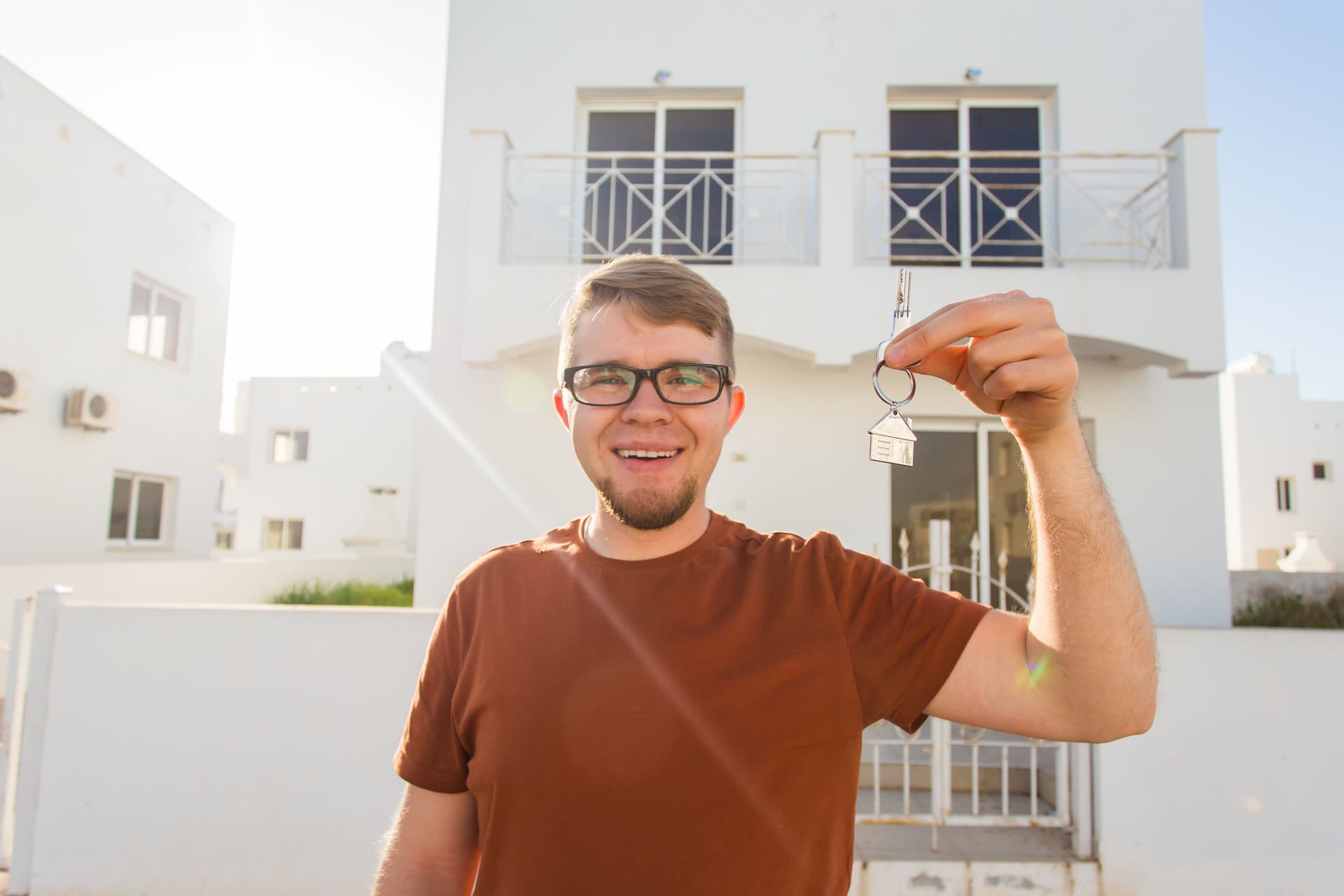

Renting in Spain – Expat Housing Guide
Moving to Spain? Discover how to rent an apartment like a local with our complete expat housing guide. Understand documents, contracts, and avoid scams — with Exodo's AI-powered support.

So you've made the big decision — you're moving to Spain. The beaches, the tapas, the vibrant culture, and that enviable work-life balance are calling your name. But before you picture yourself sipping café con leche on a sunny balcony, there's one not-so-glamorous hurdle to tackle: finding a place to live.
Renting in Spain as an expat can feel like navigating a maze of unfamiliar paperwork, regional quirks, and language barriers. From understanding your NIE to decoding rental contracts filled with terms like fianza and aval bancario, the process can be overwhelming — especially when you're doing it from abroad or right after landing.
That's where Exodo comes in. Our AI-powered assistant helps expats and digital nomads like you handle official paperwork, understand local regulations, and stay organized with smart checklists and document analysis. Think of us as your multilingual friend who's already been through the Spanish rental process and knows exactly what you need. Let's walk through everything you need to know about renting an apartment in Spain.

Understanding the Spanish Rental Market
Spain's rental market varies dramatically depending on where you're looking. Madrid and Barcelona are the most expensive cities, with average rents for a one-bedroom apartment ranging from €900 to €1,500+ per month in central neighborhoods. Valencia offers more affordable options (€600–€900), while Andalusia — think Granada, Seville, or Málaga — can be even cheaper, especially outside tourist hotspots.
When searching for expat housing in Spain, you'll encounter two main types of rentals:
- Short-term rentals: Tourist apartments or temporary stays (under 11 months). These are often fully furnished and include utilities, but come at a premium price and less legal protection.
- Long-term rentals: Standard contracts usually last one year or more (often three to five years). These offer better tenant rights under Spanish law and are more cost-effective for anyone planning to stay.
Prices also depend on whether you're renting furnished (amueblado) or unfurnished (sin amueblar), the size of the property, and proximity to public transport or city centers. As a rule of thumb, expect furnished apartments to cost 10–20% more than unfurnished ones.
Documents You'll Need to Rent a Home in Spain
Here's where renting in Spain gets real. Spanish landlords and agencies take documentation seriously, and having your paperwork in order can make or break your application. Here's what you'll typically need:
1. NIE (Número de Identidad de Extranjero)
This is your foreigner identification number in Spain — and you'll need it for almost everything, including signing a rental contract. You can apply for your NIE at a Spanish consulate in your home country or at a local police station (Comisaría de Policía) once you arrive. Processing can take weeks, so start early.
2. Proof of Income
Landlords want assurance you can pay rent. This could be recent payslips, bank statements (usually the last 3–6 months), or an employment contract. Freelancers and digital nomads should prepare tax returns or proof of stable income.
3. Employment Contract or Proof of Employment
If you're employed, a signed contract helps. If you're self-employed or a digital nomad, be ready to explain your situation — some landlords are more flexible than others.
4. Bank Details
You'll need a Spanish bank account for most rentals. Setting one up usually requires your NIE, passport, and proof of address (which creates a catch-22 situation many expats face).
5. References
Some landlords ask for references from previous landlords or employers, though this is less common for expats.
With Exodo, you can upload your rental paperwork and instantly understand what's missing, how to translate documents, or what alternatives you can provide if you don't have everything yet. Our AI assistant breaks down complex requirements into simple, actionable steps — in your language.

Tips for Finding the Right Apartment
Now that you know what documents you need, where do you actually find apartments in Spain?
Best Platforms for Renting an Apartment in Spain:
- Idealista and Fotocasa: The two biggest Spanish rental platforms. Listings are mostly in Spanish, but filters help you narrow down by price, location, and amenities.
- Spotahome: Great for booking apartments remotely with virtual tours and English support.
- Facebook Groups: Local expat groups (like "Barcelona Expats" or "Madrid Housing") often have hidden gems and sublet opportunities.
- Local Agencies: Traditional but effective, especially in smaller cities where online listings are sparse.
Insider Tips:
- Visit in person whenever possible. Photos can be deceiving, and you'll want to check the neighborhood, building condition, and neighbors.
- Beware of scams. Never transfer money before signing a contract and seeing the property. If a deal seems too good to be true, it probably is.
- Understand key contract terms:
- Fianza: A security deposit, typically one or two months' rent, held by the regional government.
- Aval bancario: A bank guarantee sometimes required instead of or in addition to the deposit.
- Gastos de comunidad: Community fees for building maintenance (often not included in rent).
Tenant Rights and Common Pitfalls
Spain has strong tenant protections under the Ley de Arrendamientos Urbanos (Urban Rental Law). Here's what you need to know:
Contract Duration: Standard residential leases are typically for one year, but the law allows tenants to extend up to five years (seven for corporate landlords). Landlords cannot easily evict you during this period unless you violate the contract.
Deposit Rules: Your fianza is legally protected and must be returned within 30 days of moving out, minus any legitimate deductions for damages.
Early Termination: Tenants can usually terminate the contract after six months with 30 days' notice, though you may forfeit part of your deposit depending on the agreement.
Common Pitfalls to Avoid:
- Verbal agreements: Always insist on a written contract. Verbal agreements offer no legal protection.
- Paying deposits without contracts: Never hand over money until you've signed official paperwork and received a receipt.
- Ignoring the fine print: Some contracts include clauses about utilities, maintenance responsibilities, or pet policies. Read everything carefully — or better yet, use Exodo's AI document analyser to review your contract and flag potential issues before you sign.

Expat Housing Insights – What Locals Won't Tell You
Living in Spain means embracing some cultural quirks that can catch newcomers off guard:
Siesta Hours: Don't expect to schedule apartment viewings between 2 PM and 5 PM. Many agents and landlords shut down during siesta.
Agent Commissions: In Spain, tenants often pay the agent's fee (usually one month's rent). This isn't always advertised upfront, so ask before viewing properties.
Hidden Costs: Beyond rent, budget for gastos de comunidad (€30–€150/month), utilities, and potentially an annual property tax if agreed in the contract.
Language Barriers: Many landlords, especially in smaller cities, don't speak English. Having a Spanish-speaking friend or tool like Exodo to help translate documents and communications can save you from misunderstandings — and potential financial headaches.
Bureaucracy is Real: From registering at the empadronamiento (local census) to setting up utilities, Spain's administrative processes can be slow. Patience and preparation are your best friends.
Conclusion: Simplify Your Move with Exodo
Renting in Spain doesn't have to be stressful. With the right preparation, documents, and tools, you can secure your dream apartment and focus on what really matters — enjoying your new life in Spain.
Here are your key takeaways:
- Understand the difference between short-term and long-term rentals
- Gather essential documents early (especially your NIE)
- Use trusted platforms and always visit properties in person
- Know your tenant rights and read contracts carefully
- Budget for hidden costs beyond monthly rent
Ready to make your move smoother? Exodo's AI-powered assistant helps you upload, analyse, and organise all your rental paperwork, translates complex Spanish documents, and provides personalised checklists for every step of your relocation — from getting your NIE to registering with local authorities. Whether you're renting an apartment in Spain or navigating visa requirements, we're here to simplify the bureaucracy so you can focus on the adventure ahead.
